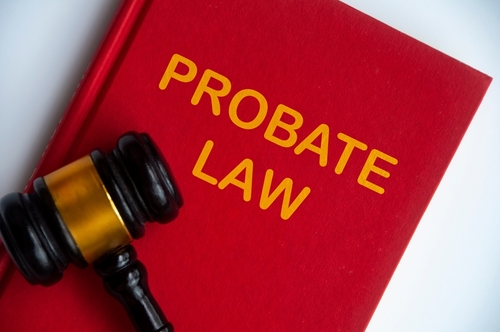A comprehensive estate plan provides peace of mind that your assets will be distributed to your loved ones upon your death exactly as you intend. A last will and testament and a trust are two estate planning tools that serve slightly different purposes, complement each other well, and are frequently part of an estate plan.
Whether you need a will, a trust, or both is determined by your personal circumstances, estate planning goals, and financial situation.
What is a last will and testament?
A last will and testament is a document that outlines how you would like your assets to be distributed upon your death. A will goes through the probate process, which is overseen by the probate court.
In addition to distributing your assets, a will allows you to name an executor for your estate and express your wishes regarding guardians for your minor children.
You can update your will throughout your lifetime as your circumstances and family structures change, but a will does not take effect until after your death.
What is a trust?
A trust is a fiduciary agreement between a grantor (trustor, person funding the trust) and a trustee, to whom the grantor gives the trustee the authority to hold and manage the trust assets in accordance with the instructions outlined in the trust documents. The assets are distributed to the beneficiaries named in the trust document. Unlike a will, a trust can be active and effective during your lifetime and continue after your death.
As the grantor for a trust, you would create the trust, fund it with assets such as real estate, bank accounts, heirlooms, insurance, etc., and appoint a trustee to manage it. Often, as the grantor, you will also serve as the trustee. A trust enables you to name a cotrustee or successor trustee to fill this role if you become incapacitated and to take over upon your death.
There are many types of trusts. They can be broadly divided into revocable and irrevocable trusts.
- Revocable trust: Often referred to as a living or inter vivos trust, a revocable trust allows the grantor to retain control over the trust assets throughout their lifetime. As long as they are mentally competent, the grantor can also amend or modify the trust documents and terminate the trust.
- Irrevocable trust: While an irrevocable trust offers greater asset protection, it cannot be modified or revoked once it is established, except in extremely rare circumstances. Once a grantor transfers their assets to the trust, they cede control over them.
Contrasting a Will and a Trust
Both a last will and testament and a trust have advantages and disadvantages.
Probate
Probate is a legal process of dissolving an estate, whether or not the decedent left a last will and testament. After the probate court verifies that the will is valid, the executor will notify all interested parties and creditors. In addition, they will also inventory the decedent’s estate, pay creditors and taxes, and distribute assets to the beneficiaries.
A trust allows you to pass your assets to your loved ones without going through the probate process. A will cannot help you avoid the probate process. Your executor will work with the probate court to ensure that your assets are distributed in accordance with your instructions.
The probate process can be time-consuming, costly, and stressful, especially if your heirs do not agree with the will or your estate is complex.
The probate process is also a matter of public record. This is one of the many reasons why people may prefer to use an alternative estate planning tool, such as a trust. A trust allows a trustee to distribute your assets to your beneficiaries following your instructions in the trust document bypassing the probate process.
Minor Children
A trust can be established to care for your children’s financial, medical, educational, and other needs. However, you will need a will to name a guardian for your children.
Titling Assets
When assets are transferred to the trust, the trust assumes ownership over them, so they must be re-titled in the trust’s name. This can be time-consuming. With a will, the assets remain under their original owner’s name and do not need to be re-titled.
Do you need a last will and testament, a trust, or both?
Writing a last will and testament is a great place to start when creating a comprehensive estate plan. However, it does not help your heirs avoid probate. Depending on the size of your estate, your goals for providing for your children, grandchildren, and beyond, and your family situation, a will may be sufficient to meet your estate planning needs.
However, a trust may be necessary if you wish to help your heirs avoid probate, have a larger or more complex estate, or have unique tax liabilities.
Ideally, if you have minor children, you would have a will and a trust in place. The will would designate guardians for your minor children (and even your pets), while a trust would be used to distribute your assets and provide financial assistance to your children. This enables you to fund future milestones, such as a college education and weddings, in a manner consistent with your goals. It can also help safeguard your children’s assets from creditors, spendthrifts, and other financial threats.
Whether you choose to have a last will and testament, a trust, or both, keeping your documents updated with changes in your family structure, goals, and financial situation is critical. Don’t forget to add or update beneficiary designations on retirement accounts and life insurance policies.
If you are ready to embark on estate planning or update your estate planning documents, schedule an appointment with the attorneys at Katzner Law Group to discuss your estate planning goals, create custom estate planning documents that meet your specific needs, and discuss how different estate planning options impact you and your loved one’s financial future.
We welcome you to schedule a call with us or reach us directly at 855.631.3457 to learn more about how best to plan today to protect those most important to you.








